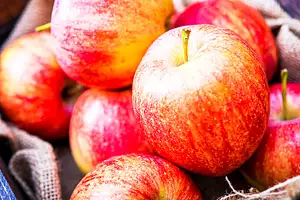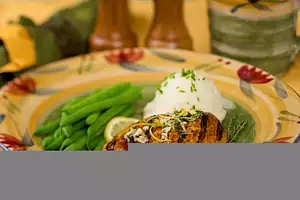When you reach for your best pair of jeans and find that you can’t comfortably zip them up, it can be upsetting! You may not have actually gained weight, though, you may just be bloated.
Bloating is especially common in women after the age of 40. If you find yourself frequently feeling bloated, here are some simple changes you can make that might help you out, slim you down and lessen the bloating!
1. Get enough fibre.
Being constipated is a common cause of bloating. When you can effectively battle the constipation problem, you will be less bloated. Try adding more fibre to your diet, and start your day with a high fibre, whole grain cereal that contains insoluble fibre (like bran) and soluble fibre (like psyllium). Add in fibre throughout the day, as well, and within a few days you will find yourself less bloated.
2. Steer clear of hot foods.
Unfortunately for those who love the spicy stuff, these foods can cause the stomach to produce more acid, which can lead to an increase in bloating. Try getting your flavour boosts from dried herbs like dill, mint, sage, tarragon, or rosemary instead of hot sauce, black pepper, chili powder or vinegar.
3. Skip chewing gum.
Whenever you chew gum, you will inadvertently swallow air. This air can become trapped in your digestive system and lead to increased pressure and bloating.
4. Steam your veggies.
While raw veggies are certainly a healthy snack, they can take up extra room in your digestive system and take longer to digest, which could lead to bloating. You will get exactly the same nutritional benefit from a half cup of steamed carrots as you would from a whole cup of raw carrots. Steam the veggies to lessen the bloat!
5. Avoid artificial sweeteners.
Artificial sweeteners, particularly sorbitol, xylitol, and mannitol are sugar alcohols that are common ingredients in diet sodas or sugar free chewing gum. These ingredients lead to bloating and puffiness.
6. Eat beans carefully.
Legumes and vegetables such as cabbage and Brussels sprouts can lead to gas in your digestive system. If you are eating beans, soak them overnight or make sure you take an enzyme like Beano to help combat the inevitable bloating you will experience.
7. Reduce the carbs.
Our bodies require glycogen for energy, and every gram of glycogen is stored along with about 3 grams of water. When you have excess glycogen stores, you will have excess fluid stores, too. Eating less high-glycogen foods, like bagels, pasta, pretzels, and other carbs will help reduce the excess fluid that may be contributing to your bloating.
8. Avoid acidic beverages.
Drinking large amounts of coffee, tea, juice, and alcohol can contribute to excess bloating because they all are known to cause some irritation in the gastrointestinal tract, which can lead to swelling and bloating.
9. Drink more water.
Even though bloating is often caused by excess fluid retention, drinking more water can help you stay properly hydrated and reduce bloating. Try to drink at least 8 glasses of water each day for best results. After doing this for a few days, you will start to notice a huge difference in your bloating.
10. Get more activity.
Physical activity can help release the fluids and gases that cause bloating in your gastrointestinal tract. This will help relieve pressure and bloating. When you raise your heart rate through exercise, your breathing will help to stimulate the intestinal muscles that are contracting, causing constipation. Walking for at least five minutes can help move things along and reduce bloating.
11. Eat more bananas.
Certain foods, especially bananas, can help rid your body of excess water. Potatoes and spinach are also in this group. Keep your potassium and sodium levels well balanced and you will feel less bloated.
These are some simple tips to help you battle bloating! Try adding these tips to your healthy lifestyle for relief.










Comments